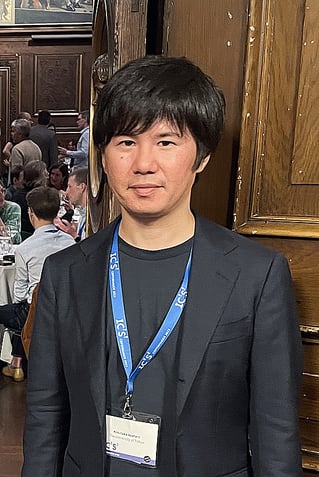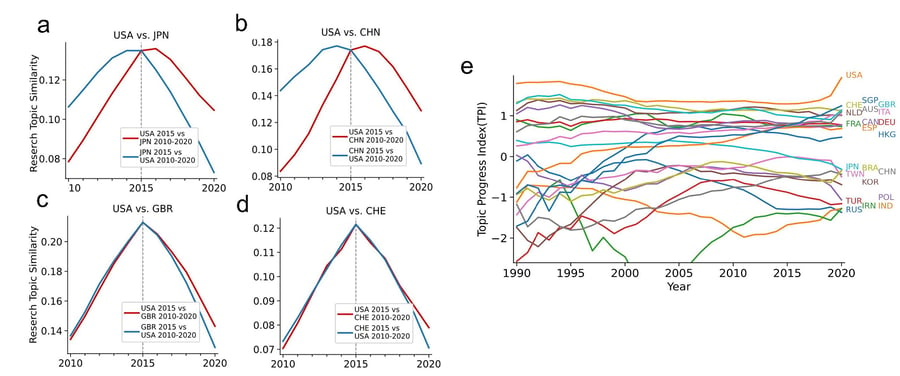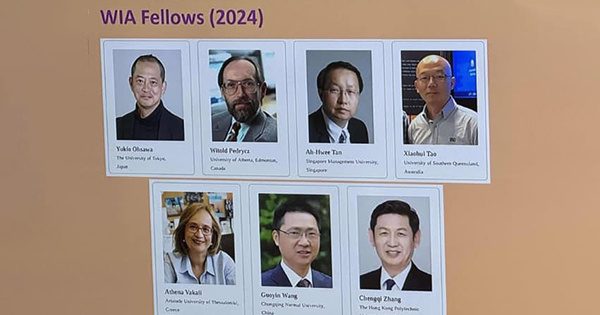Share this
Young Faculty / 078
Project Lecturer Kimitaka Asatani, Sakata Mori Asatani Lab, Department of Technology Management for Innovation

< Biography >
Sep.2015 : Ph.D.(Engineering), Department of Systems Innovation, School of Engineering, The University of Tokyo
Nov.2015 : Project Researcher, Department of Technology Management for Innovation, School of Engineering, The University of Tokyo
Oct.2019 : Project Assistant Professor, Department of Technology Management for Innovation, School of Engineering, The University of Tokyo
Aug.2021- Present: Project Lecturer, Department of Technology Management for Innovation, School of Engineering, The University of Tokyo
< About the research >
"Science of Science" is a discipline that studies the behavior of scientists. The main data we deal with are academic papers, but by combining data on budgets, policies, SNS, etc., we clarify the ecosystem of the academic world. Such analysis provides useful insights into science and technology policy, industrial applications of science, teams, gender, and the careers of scientists.
One of the phenomena our group focuses on is the time lag in research. Many Japanese researchers might feel that "discussions in Japanese academic societies are behind." We quantified the time lag of research topics from the entire dataset of Scopus papers[1]. The red line in Figure a represents the similarity between the research topics in Japan in 2015 and those in the US from 2010 - 2020, while the blue line compares the US in 2015 and Japan from 2010 - 2020. The 2015 research topics in Japan are similar to the 2014 research topics in the US, indicating a time lag in research topics. Similarly, China is also behind the US in research topics (Figure b), but the UK and Switzerland do not have a time lag with the US (Figures c, d). The annual indexing of these time lags is shown in Figure e. There is a consistent time lag between Western countries (+ Singapore, Hong Kong) and other countries.

Figure:
(a-d) Time-series comparison of research topics between two nations.
(e) TPI (Topic Progress Index), by stacking bilateral comparisons. TPI’s annual transition of each nation is plotted.
Since around 1990, Japan has been gradually declining in terms of the progress of research topics and is moving away from the global forefront, gradually falling into the category of "other countries." This analysis provides insights into whether it is sufficient to linearly increase the science and technology budget, how to review and evaluate major budgets like research grants, and how to interact with overseas entities.
In addition to this research, we are also working on various studies such as the relationship between policies and science, the usage and effects of X/Twitter by scientists, analysis of "slow cited" papers, prediction of Nobel Prizes by extracting important concepts, and more. We also conduct specialized analyses in fields like the practical history of carbon nanotube research and applications, and the relationship between SDGs and academic papers.
< Future aspirations >
There are many interesting structures and phenomena in the ecosystem of academia. There's abundant publicly available data, and as long as proper analysis is done, there's an endless expanse of research themes. We are looking for people with diverse perspectives to join us in our research.
As mentioned at the beginning, we have translated "Science of Science (Dashun Wang et al, 2021)" [2] into Japanese and are hoping to publish it within the year.
[1] Asatani, K., Oki, S., Momma, T., & Sakata, I. (2023). Quantifying progress in research topics across nations. Scientific Reports, 13(1), 4759.
[2] Wang, D., & Barabási, A. L. (2021). The science of science. Cambridge University Press.
< URL >
Sakata Mori Asatani Lab:https://www.sakatalab.t.u-tokyo.ac.jp/
These Related Stories


